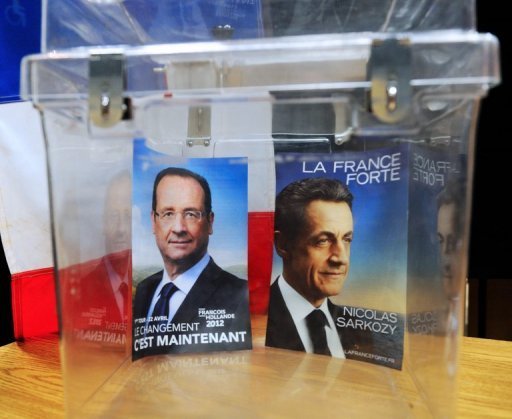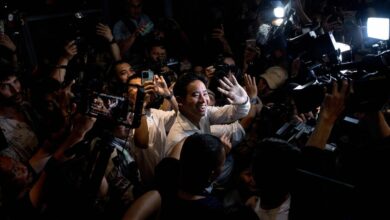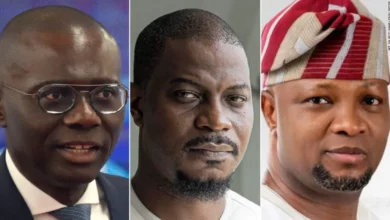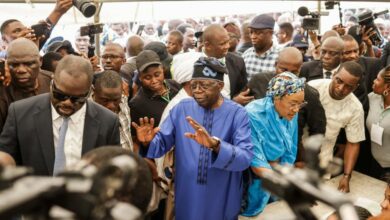
French presidential candidates marked a one day truce Saturday on the eve of voting in a first-round poll to whittle the ten-strong field down to two frontrunners.
French election rules outlaw both campaigning and opinion polling on the last day of the race, but Socialist challenger Francois Hollande went into the weekend favourite to oust right-wing incumbent Nicolas Sarkozy.
The two 57-year-old political veterans are expected to win the two spots in the May 6 run-off, and polls suggest that the left-winger will comfortably win the battle to become one of the most powerful leaders in the world.
France is a nuclear-armed power, a permanent member of the UN Security Council and the tenth biggest economy in the world in terms of GDP. Its executive president wields extraordinary personal power.
Sarkozy has, in the teeth of much criticism of his hyperactive leadership style, made the office still more influential by downgrading the role of his prime minister and taking day-to-day charge of matters of state.
The eventual winner of the 6 May vote will still have to win legislative elections in June to make sure of his or her authority, but any French leader with a parliamentary majority has wide room to manoeuvre.
First, however, 44.5 million French electors must make their choice.
Voting in the first round began on Saturday in France's far-flung overseas territories—islands in the Pacific, Indian and Atlantic oceans—where 882,000 people enjoy full voting rights as citizens of the republic.
Then on Sunday, 85,000 polling stations will open around the mainland from 8 am. Most will close at 6 pm, but in major cities they will stay open until 8 pm, when estimated results will be released.
In France, opinion poll institutes are permitted to take samples from ballot boxes during polling, so the estimates they release at 8 pm are generally an accurate measure of the result and the figures will lead television news.
More than 400 opinion polls have been conducted during the campaign, a third more than in the last race in 2007, and the vast majority tell the same story.
Hollande is expected to come in first place in the first round, closely followed by Sarkozy, so both ought to qualify for the run-off.
Three more candidates could break into double figures in percentage terms, far-right flagbearer Marine Le Pen, hard-left firebrand Jean-Luc Melenchon and veteran centrist Francois Bayrou.
While good scores would give these three a voice in national politics and their supporters a boost before the June parliamentary election, they will bow out on Sunday and leave the frontrunners to woo their voters.
This is where it gets tricky for Sarkozy, who is personally unpopular even among voters who broadly share his centre-right agenda. Hollande is expected to romp home comfortably on 6 May, making Sarkozy a one-term leader.




